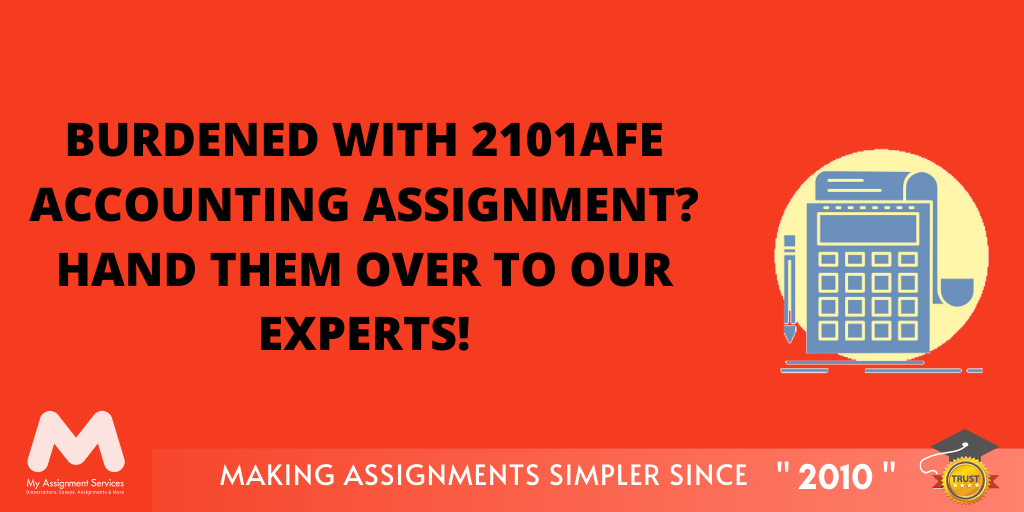The accounting world concentrates its attention on both large notability organizations with their complex reporting needs and complex requirements for financial statements. Moreover, small businesses along with sole traders and partnerships and also not-for-profit organizations need to prepare financial statements exactly as reporting entities despite their lack of reporting requirements. The process is essential for tax compliance purposes while also supporting business funding acquisition and performance evaluation. However, learners obtain effective skills and knowledge to conduct financial reporting through the competency-based learning unit FNSACC414 "Prepare Financial Statements for Non-Reporting Entities." Further, those interested in understanding the unit can rely on FNSACC414 Assessment Answers to gain insights for mastering it.
The following blog explores the preparation process for financial statements adjacent to non-reporting entities with specific details about essential procedures and learning advantages.
What Are Non-Reporting Entities?
Organizations which do not require preparing accounting information according to Australian Accounting Standards issued by the Australian Accounting Standards Board are known as non-reporting entities. Special-purpose financial statements must replace general-purpose financial statements for these organizations because reporting entities do not have this requirement. Special-purpose financial statements (SPFS) serve as their primary financial reporting outlet since non-reporting entities generate documentation that satisfies particular user requirements like owners, managers and tax officials.
Examples of non-reporting entities include:
- Sole proprietorships
- Partnerships
- Small proprietary companies
- Family trusts
- Charities and not-for-profits (below certain thresholds)
These entities usually have fewer stakeholders and less complex financial operations than reporting entities, but they still require accurate and reliable financial records for FNSACC414 purposes.
The Importance of Financial Statements for Non-Reporting Entities
Accurate financial statements serve several purposes, even for smaller organizations:
- Compliance: The preparation of financial statements is required to fulfill both tax regulations and regulatory specifications.
- Decision-Making: The financial statements help executives make better decisions through their revelation of business financial status.
- Funding: Financial statements obtain critical importance in funding because financial institutions together with investors use them to judge the suitability of businesses for investment.
- Performance Assessment: These statements act as performance tools to help owners and managers track business development and manage costs while planning future expansion.
Ultimately, by preparing financial statements correctly, non-reporting entities ensure transparency and build trust with stakeholders, which is a crucial aspect of FNSACC414 assignment preparation.
Key Financial Statements for Non-Reporting Entities
Here are some key financial statements for non reporting entities are:
- Income Statement: A business depicts its earned revenue and costs in the Income Statement then exhibits the total earnings or losses during a set reporting period.
- Balance Sheet: It gives an image of the entity's financial position by showing assets, liabilities and equity at a certain point in time.
- Cash Flow Statement: It shows the flow of business funds while categorized into operating cash, investing cash and financing cash (optional sections).
- Statement of Changes in Equity (where applicable): Statement of Changes in Equity appears only when applicable to demonstrate equity alterations throughout the reporting period.
Non-reporting entities must prepare the income statement and balance sheet regardless of their reporting needs and might not need the other financial statements. Further, if you still have any doubts then opting for financial accounting assignment help is the best option for you.
Steps to Prepare Financial Statements
Here are some steps that you need to consider for preparing the financial statement:
Gather Financial Data
The process begins with collecting all relevant financial records, including:
- Bank statements
- Invoices and receipts
- Payroll records
- Loan agreements
- Previous financial reports
So, you will have to know that accurate and up-to-date bookkeeping is critical at this stage. Moreover, there are some softwares tools like Xero, MYOB, or QuickBooks that can simplify this process.
Adjust Entries
Adjusting entries ensure that the financial records accurately reflect the entity’s financial position and performance. This is a critical component of the FNSACC414 framework, helping ensure accuracy in financial reporting. Common adjustments include:
- Depreciation of fixed assets
- Accrued expenses
- Prepaid expenses
- Inventory valuation
Prepare the Trial Balance
The trial balance is a summary of all ledger accounts. It helps you to verify that total debits equal total credits, ensuring the books are balanced before preparing the financial statements.
Draft the Financial Statements
Using the trial balance, you can prepare the income statement and balance sheet. If needed, A cash flow analysis can also be used to draft a cash flow statement and a statement of changes in equity, providing a clear overview of financial movements and equity adjustments.
Review and Finalize
You have to review the financial statements for accuracy and consistency. Moreover, you are required to check for any discrepancies and ensure compliance with relevant regulations and tax laws.
Regulatory Considerations
While non-reporting entities don’t need to comply with all Australian Accounting Standards, they must adhere to:
- Taxation Laws: Businesses must follow all requirements from the Australian Taxation Office (ATO) in taxation matters. Businesses which have registered for GST must properly document their sales and business spending.
- Corporations Act 2001: Small proprietary companies may still need to provide financial information to shareholders or ASIC if requested.
- Other Specific Requirements: Trusts, partnerships, and not-for-profit groups might have additional obligations depending on their structure and activities.
Accountants preparing financial statements for non-reporting entities must understand these obligations to ensure compliance, a key focus area often highlighted in FNSACC414 Assessment Answers.
Benefits of Completing FNSACC414
Studying FNSACC414 is invaluable for aspiring accountants, bookkeepers, and finance professionals. Here’s why:
- Practical Skills: The unit develops key practical competencies through training about trial balance preparation and entry adjustments and financial report generation.
- Career Opportunities: The acquisition of teaching skills in this area enables professionals to take positions that focus on bookkeeping and accounting or serve as small business advisors.
- Confidence: Engineers who understand this process develop the capability to guide clients with assurance while they fulfill their financial reporting requirements.
- Trainer Challenges: This unit builds essential accounting skills which create a base needed for higher-level accounting activities
Ultimately, these are the benefits of FNSACC414 that you need to consider for your FNSACC414 assignment.
Challenges and Tips
Preparing financial statements for non-reporting entities comes with its challenges. Here are some common issues and tips for overcoming them:
Incomplete Records
Challenge: Small businesses often have disorganized or incomplete financial records.
Tip: Always consider encouraging clients to maintain regular bookkeeping practices. Moreover, you ought to use accounting software to streamline data entry and reporting.
Regulatory Updates
Challenge: Keeping up with changes in tax laws and regulations can be difficult.
Tip: You are required to stay informed through professional development and resources from organizations like CPA Australia or the Tax Practitioners Board.
Time Constraints
Challenge: While preparing financial statements it can be time-consuming, especially for small business owners juggling multiple responsibilities.
Tip: You have to automate repetitive tasks using accounting software, and allocate dedicated time for financial management. So, always remember this while doing your FNSACC414 Assessment answers.
Technical Errors
Challenge: Errors in calculations or adjustments can lead to inaccurate statements.
Tip: You are required to double-check work, together, always remember to use built-in validation tools in software, and seek peer reviews if possible.
In Retrospect!
We concluded that financial statements preparation skills for non-reporting entities prove essential for both accounting specialists and business management professionals. Moreover, FNSACC414 provides students with a systematic process to develop their competency skills in creating financial records that comply with industry standards.
Following best practices together with modern tools simplifies preparing documents to deliver essential performance insights about business operations. If you'd like to learn more about this topic or need assistance with finance and accounting, reach out to My Assignment Services. Our financial assignment help is here to help you excel. Contact us today to get started!




